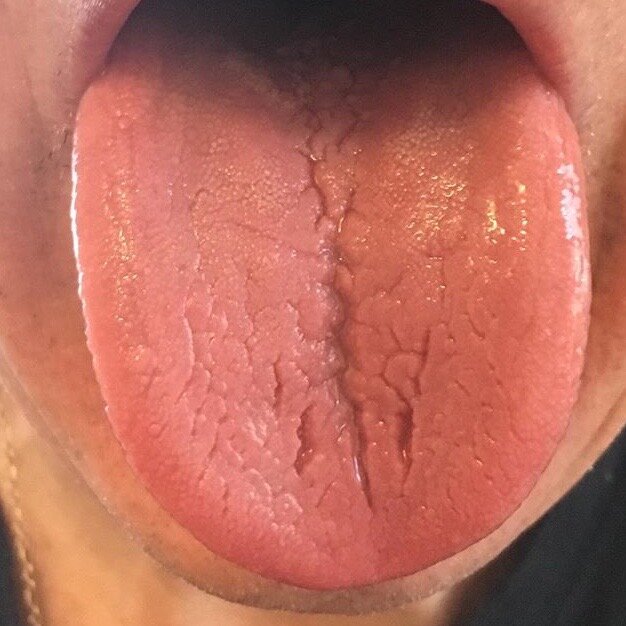Sugar Doesn’t Cause Dampness
In 2012 about 56 million people died throughout the world; 620,000 of them died due to human violence (war killed 120,000 people, and crime killed another 500,000). In contrast, 800,000 committed suicide, and 1.5 million died of diabetes. Sugar is now more dangerous than gunpowder.”
― Yuval Noah Harari
In western medicine, Type-II diabetes is also known as non-insulin dependent or adult-onset diabetes and is clinically characterized by polyuria, polyphagia, polydipsia and sometimes weight loss. Complications include peripheral neuropathy, retinopathy and possible kidney failure. Diabetes is known as Xiao Ke Bing or ‘Wasting and Thirsting Disorder’ disorder in Chinese medicine. Three Chinese medicine organs are directly affected: Lung, Stomach and Kidney. In Ayurvedic medicine, the term madhumeha is used, which is Sanskrit for ‘honey urine.’
Under normal circumstances, when a carbohydrate is consumed, the hormone insulin is released which signals the body to uptake the glucose into muscles and tissues. Any excess will be stored in the liver for when a person is in a fasting state, and the hormone glucagon will break down the glycogen in the liver and release it as glucose. The liver also has the ability to create sugar with amino acids, waste products and fat by-products (gluconeogenesis),
When sugar is consumed in excess, the kidneys are kicked into overdrive to produce more urine to flush out the sugar. Water can even be pulled out of tissues to help facilitate this process. Using up more of the body’s water and causing larger amounts of urination leads to minor dehydration. Minor dehydration will likely manifest as minor thirst; however, as we know, chronic dehydration can occur while high sugar levels remain the same. Imagine this scenario now with a patient who doesn’t consume enough daily water to begin with. A 2017 study revealed that as little as 3 days of limited water intake in people with Type-II Diabetes Mellitus impaired blood glucose response.
We hear it all the time in our Chinese medicine studies - that sugar, wheat, dairy, greasy and processed foods all cause Dampness. And then we go on to learn about Xiao Ke Bing and its Differentiation of Syndromes:
Lung-Yin Deficiency
Stomach-Yin Deficiency
Kidney-Yin Deficiency
I’m not arguing that dairy, greasy and processed foods, or any food that a person has a sensitivity to doesn’t cause Dampness, but I don’t believe that sugar causes Dampness. It causes Dryness, or rather: Yin Deficiency.
In our body there is a balancing act of Yin and Yang. We learn that too much of either is not a good thing. We also learn that too little of one causes an excess of the other. If there is a Yin Deficiency that doesn’t only mean there is Dryness, there is a chance that over a long period of time a Deficiency-Heat or Deficiency-Fire scenario will be created.
The Lung is the ‘most superficial organ.’ This means it is the most vulnerable to a Dryness attack. Lung-Yin Deficiency will lead to the symptoms of dry nose, dry mouth and dry skin.
The Stomach and Intestines are most vulnerable to Heat attack. Stomach-Yin Deficiency leads to an increase in appetite and, consequently for some people, an increased burning up of the food. Stomach-Yin Deficiency can readily be seen on the tongue when there are multiple cracks throughout.
The Kidneys, in both Chinese and Western medicine, are closely related to the excretion of water. However, in Chinese medicine, the Kidneys are viewed as the base or root of which all water in the body resides. If there is a Kidney-Yin Deficiency, this will affect the entire body. Urination is increased amongst other symptoms: lower back pain, soreness and weakness in the knees, hot flashes, night sweating, five-palm heat, etc.
There is one other organ that Yin Deficiency often affects and that is the Liver. The Liver in Chinese medicine is so closely tied to Blood storage that if there is Yin Deficiency there is often Liver-Blood Deficiency. This can then explain the blurry vision and neuropathy that can occur in progressive diabetic patients, since the Liver opens into the eyes and governs the muscles, tendons and sinews. The Liver also resonates with anger and irritability, and houses the Hun - which allows a person to have a life-vision and plan it out.
The beginnings of Lung-, Stomach- and Kidney-Yin Deficiency
Lastly, looking at the acupoints that best treat diabetes shows us again that this is a Yin-Deficiency condition:
Relieving polyuria: REN3, UB28, UB32
Relieving polyphagia: REN12
Relieving polydipsia: LU9
General tonification: REN4, REN6, KD3, KD6, UB23, SP6, SP10, UB17, LV3
When sugar is added to a baking recipe it soaks up all of the liquid around it. When sugar is added to the human body it, essentially, soaks up all the water around it. Eating sugar doesn’t cause Dampness. It causes Dryness and eventually Yin Deficiency.
While the blending of Western medicine and Chinese medicine thought isn’t always recommended, I believe it can be done in the right context - such as when the signs, symptoms and differentiation are staring me plainly in the face in clinic. Also, the language we use in Chinese medicine defines how we can use it. Pattern diagnosis is what we do. If we use the right language we can get to the correct acupoints, herbs, and better council our patients in regards to diet and lifestyle.
References / resources:
The Strength of TCM Workbook: https://kentonsefcik.com/shop/sotcm-workbook
https://www.healthline.com/health/diabetes/diabetes-thirst#diabetes-and-thirst
https://www.ncbi.nlm.nih.gov/pubmed/28739050
https://www.endocrineweb.com/conditions/type-2-diabetes/type-2-diabetes-symptoms
https://www.sciencehistory.org/distillations/sickening-sweet

